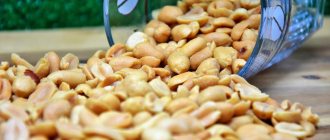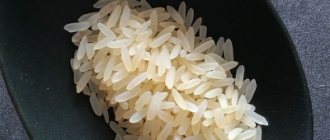Do you know which fruits you can always give your dog, which ones with caution, and which ones you should not offer your pet at all? Today we will try to understand this issue with you.
Currently, there are many different power systems. For example, adherents of the RAW system argue that, following the physiological characteristics of its distant ancestors - wolves, a dog should eat exclusively animal protein. That in the wild, wolves eat exclusively meat.
But it is not so. Yes, the main product in a predator’s diet is undoubtedly meat and poultry. But an important part of the diet consists of plant foods. By eating various berries, wild fruits and mushrooms, the body receives the fiber it needs. Steppe wolves often raid watermelon and melon fields. But by eating various rodents along with the contents of their stomachs, predators also eat grain crops.
Therefore, whatever one may say, dogs need both plant foods and grain products. And it’s not surprising that your pet eats a slice of apple, a carrot or a piece of watermelon with great pleasure. The four-legged body simply needs this.
But today we will talk about which fruits are necessary and healthy for dogs, and which ones should be limited. To ensure that no digestive disorders or allergies arise when introducing any new fruit into your dog’s diet, it is important to know how to properly offer your dog a new treat.
How to introduce fruits into your dog's diet
How should you offer fruit to your dog for the first time? There are several basic recommendations:
- Each new fruit should be given to the dog in small quantities, no earlier than 1-2 hours after the main feeding.
- Be sure to monitor the condition of your furry friend. If symptoms such as red ears or limbs, rashes or redness on the skin, watery eyes, gas, bloating, diarrhea or nausea appear, your pet is likely allergic or intolerant to the fruit.
- Add fruits one at a time. It should take at least 2-3 days before giving your dog a new piece of fruit. If an allergy appears, this is the only way you will understand exactly which fruit.
- It is best to choose seasonal fruits. The fruits must be fresh.
- The dog must be accustomed to any plant food from puppyhood. This is the only way you will get a fluffy who is not picky about food.
Rules for feeding plant foods
We described above what vegetables and fruits a dog can eat. Now let's look at the rules for eating plant fruits:
- New foods unknown to your pet should be introduced gradually and little by little. It is enough to give one teaspoon of a new treat once a day.
- If any allergic symptoms occur, you should immediately discard the product. And for a couple of days, give only proven food.
- Vegetables should be heat treated before consumption.
- Vegetables can be fed to pets in stewed, boiled, steamed, raw form, depending on the product, see above.
- Cook and simmer foods for 20 minutes without salt.
- You can prepare a salad of several vegetables using flaxseed oil.
- You cannot force it; some dogs are not attracted to vegetables and fruits at all.
Which fruits are safe for dogs?
Important! A dog’s food intolerance to a particular product is an individual characteristic of a particular organism. There are general lists of products recommended for consumption. But this does not mean that your four-legged dog will 100% not have an allergy or intolerance to one or another “allowed” product. Everything is individual. Only you yourself, through trial, can adjust the diet of your furry friend and determine the products that are right for him.
Apple
Apple is one of the fruits that practically does not cause allergies in our four-legged friends. This fruit is beneficial for both people and animals. Apples are rich in vitamin C, iron, calcium and magnesium. Apple is useful for preventing heart disease and normalizing intestinal function.
How often should you give them, at what age and in what quantities should you include this fruit in your tailed friend’s diet, read about Apples for dogs.
Pear
Pears, like apples, rarely cause allergies. If you begin to accustom your puppy to this fruit from childhood, the pear will become an excellent treat that no tailed gourmet will refuse.
Watermelon
Another fairly safe fruit for dogs, or rather a berry, is watermelon. This is a seasonal fruit that both people and our tailed tomboys look forward to. You can offer your dog watermelon in exactly the same form as we eat it: without the rind and without the seeds. Watermelon perfectly quenches thirst and helps remove cholesterol from the body.
The only side effect that may appear after eating watermelon is an unscheduled request from the watchdog to go pee. So, if you offer your dog watermelon, it is advisable to do it on a day off when you are at home.
Melon
Just like watermelon, melon is an excellent thirst quencher. The ancestors of dogs, wolves, often raided watermelon and melon fields for precisely this purpose. But excessive consumption of this fruit can cause digestive upset.
Banana
Many ponytails simply adore bananas. This exotic fruit is rich in beneficial vitamins and minerals. This fruit is often used as pet food. Banana is practically safe for dogs.
But fruits that are not quite ripe should be offered. Overripe fruit can cause a laxative effect. Offering your furry friend a banana 1-2 times a week will only benefit his body.
Rowan, rosehip
The fruits of rowan and rose hips are a storehouse of useful substances. They contain many amino acids - the building material of all body systems. They are rich in waste-removing pectin and dietary fiber, carotene and vitamins B and E. But the tiny red berries have a specific taste. Therefore, you need to accustom your dog to these berries from an early age.
Blueberry
Blueberries are a natural antioxidant. It is rich in vitamins A, B and C, as well as magnesium and calcium. This is a very healthy berry. But due to the fact that it has a pronounced aftertaste, dogs rarely prefer to eat it fresh.
Gooseberry
Gooseberries are useful for both people and animals. It practically does not cause allergies in dogs. But you should only eat berries grown without chemicals. Gooseberry fruits are recommended for metabolic disorders.
Currant
Currants are a very tasty and healthy berry that many dogs love and can happily eat straight from the bush.
Healthy berries
Berries are another acceptable and healthy treat. However, among them there are also varieties that pose a danger.
Sweet cherry pits contain cyanide and can become stuck in the throat if swallowed.
What berries can be included in your diet in moderation:
- One of the first summer berries is strawberries. Serves as a source of fiber and vitamin C.
- Blueberries are useful for antioxidants, vitamins A, E, K. This berry is often included in high-end industrial specialized feeds.
- Raspberries have anti-inflammatory properties. May be useful for older animals. It is also rich in vitamin C.
- Rowan has no contraindications and is a good source of microelements. Contains essential organic acids and pectin. There is more provitamin A in its ripe berries than in some vegetables, for example, carrots. It is advisable to get used to this berry from a young age.
Which fruits should you limit?
Here is a list of fruits and berries that can be offered to a dog, but in very limited quantities. If after eating these fruits the animal does not have a disorder, then it is quite possible to include them in the menu. But, only in small quantities.
Persimmon
In limited quantities, persimmons are very beneficial for digestion. This fruit is a natural antioxidant. Persimmon is high in iodine and has a calming effect. Our Jack loves to eat this sweet fruit. Persimmons should be given to your dog without peel or seeds.
Plum
Many dogs enjoy eating plums. If you offer your pet this berry, be sure to remove the seeds. Well, the most important thing is that the plum should not be overripe. Overripe fruits contain alkoids that cause fermentation. This is fraught with gastrointestinal upset and poisoning.
Strawberries and wild strawberries
Strawberries and strawberries are rich in vitamins A, B and E. In addition, strawberries are high in vitamin C. The berries contain a large amount of manganese, which nourishes the intervertebral discs and, in combination with calcium and phosphorus, helps strengthen bones.
However, you should not offer your pet strawberries and wild strawberries in large quantities. The high content of red pigments (anthocyanins) in berries can cause an allergic reaction.
Raspberries
Like strawberries, raspberries are rich in vitamin C and have strong anti-inflammatory effects. But, like strawberries, raspberries are an allergen. Therefore, the consumption of this tasty and juicy berry should be limited.
Peach and Apricot
This is a great treat for your pet. Remove the pit, cut into slices, and your little one will definitely be satisfied. In large quantities, peaches and apricots can make you weak, especially for dogs that are not used to such treats.
Papaya
Papaya is a very healthy exotic fruit. Papaya contains a lot of enzyme that helps break down tough meat fibers. And this improves digestion and normalizes intestinal function.
Papaya fruits contain an alkaloid (carpaine), which has an anthelmintic effect, but at the same time can be dangerous in large quantities.
In addition, papaya is a fairly sweet fruit. Therefore, it is prohibited to offer it to dogs.
Kiwi
Kiwi is rich in vitamin C. But it is not recommended to give it often. For medium-sized dogs, no more than one slice per week is allowed.
Cherries and sweet cherries
Cherry fruits cannot be called a champion in the content of one or another useful element. All vitamins and minerals are distributed more or less evenly in the berry. Offering a few berries to your pet as a treat will do no harm.
Before giving your dog cherries, be sure to remove the pits. Cherry pits release hydrocyanic acid, which has a toxic effect on the body.
Cherries are not recommended for dogs prone to allergies, as well as animals with gastrointestinal diseases.
How is grape or raisin poisoning diagnosed?
Unfortunately, symptoms of grape or raisin poisoning are nonspecific and similar to kidney failure. The veterinarian bases a presumptive diagnosis of poisoning only on the basis of anamnesis, that is, relying on the words of the animal owner that the dog ate grapes, raisins and currants, or pieces of berries or peels of these fruits were found in the dog’s vomit.
The doctor may recommend laboratory tests, such as a complete blood count, blood chemistry panel, and urine test, to evaluate the extent of kidney damage. The results of these studies can help determine the animal's likelihood of recovery.
Fruits that are not recommended for dogs
I will list fruits that are not recommended for dogs. But, if your dog accidentally eats a small tidbit of one of these treats, most likely nothing terrible will happen.
Grape
Many owners of four-legged animals claim that their pets eat grapes without any consequences or complications. Yes, that's probably true. But grapes (especially the Isabella variety) contain a substance called methanol, which is a strong poison.
In animals with a sensitive gastrointestinal tract and kidney problems, even a few grapes eaten can cause severe poisoning and kidney failure.
Pomegranate
Fruits are very healthy for dogs. But fruits with seeds, and especially seeds from them, are under no circumstances allowed. And pomegranate just belongs to this number. In addition to intestinal obstruction, eating the seeds can cause poisoning. After all, the seeds contain cyanide, the use of which even in small quantities causes poisoning in the animal.
Avocado
Avocado contains a toxic substance called persin, which can cause the development of pancreatitis and disruption of the heart and respiratory tract. Therefore, just as in the case of grapes, it is better not to offer this fruit to a four-legged animal at all.
Citrus
As we know, citrus fruits (lemons, tangerines, oranges and grapefruits) contain a high content of vitamin C, which can cause irritation of the gastric mucosa. However, if your dog is in excellent health and is not prone to allergies, it is quite acceptable to offer your tail a few slices of these fruits (no more), especially in winter.
And in conclusion I would like to say. Offering your dog fruit is not only possible, but even necessary. However, this tasty treat can bring both benefit and harm to the animal’s body. Therefore, it is important to know which fruits can be given and which ones it is better not to experiment with.
Why are raisins, grapes and currants toxic?
It is currently unknown why these fruits are poisonous to dogs. Some scientists suspect a mycotoxin, a toxic substance produced by fungus or mold, may be to blame. Some believe that sodium salicylate, a salicylic acid derivative found in grapes, may lead to decreased renal blood flow. However, no toxic agent has been identified so far. Since it is currently unknown why these fruits are toxic, any consumption of them by dogs should be cause for concern.











